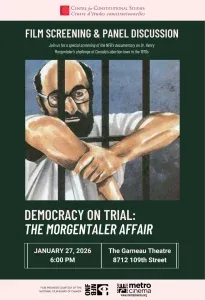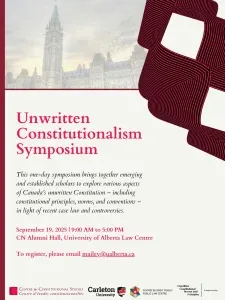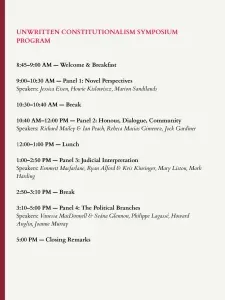Political Theory and Canada's Law of Democracy
We're pleased to welcome Justice Colin C.J. Feasby from the Alberta Court of King's Bench for a lecture on democratic theory.
This hybrid event will be held on February 3rd at 12:00PM-1:00PM MST in room 113 of the Law Centre and online via Zoom.
To register for in-person attendance, please click the red button on the right-hand side of the page, or follow this link: Political Theory and Canada’s Law of Democracy | February 3 @ 12:00-1:00 PM MST | Eventbrite
To register for online attendance, please follow this link: Political Theory and Canada’s Law of Democracy | February 3 @ 12:00-1:00 PM MST | Zoom
Abstract: Legal academics and political scientists question whether courts faced with democracy issues should be guided by political theory. Justice Feasby will argue that the text and structure of the constitution force judges to confront different aspects of political theory. The real question, according to Justice Feasby, is what kind of theory (or theories) judges should adopt. He will argue that an underlying theory of the state and three different democratic theories can be discerned from the Supreme Court of Canada’s democracy jurisprudence. These theories, sometimes in tension with one another, are manifested in different types of cases and different aspects of constitutional analysis. Justice Feasby explains that there is a coherent theoretical foundation for Canada’s law of democracy that provides useful guidance for judges confronted with democracy issues.


